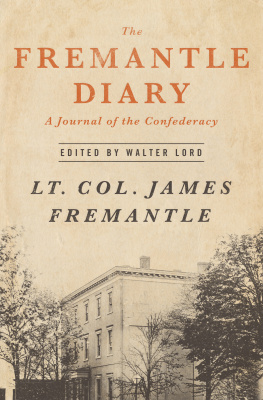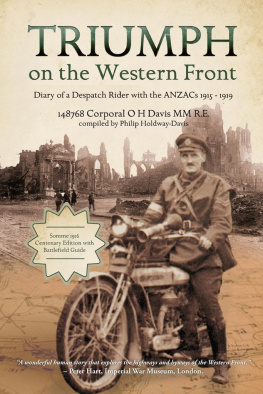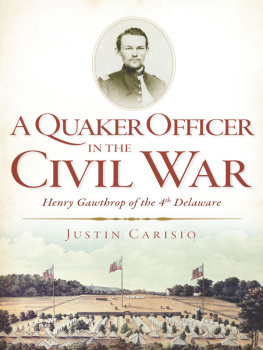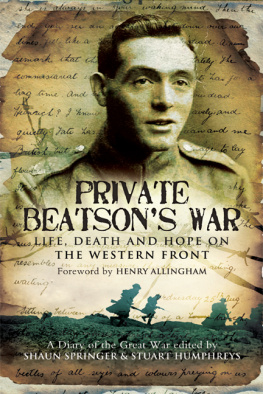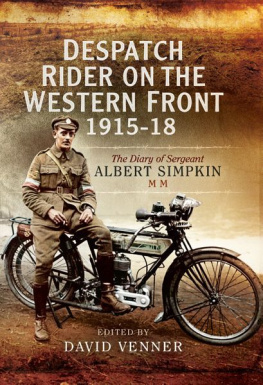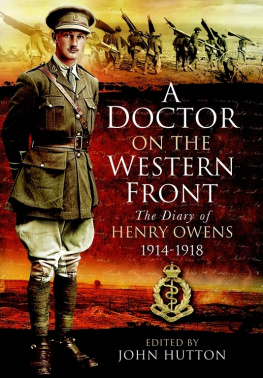First published in Great Britain in 2007 by
Pen & Sword Military
an imprint of
Pen & Sword Books Ltd
47 Church Street
Barnsley
South Yorkshire
S70 2AS
Copyright Henry Tyndall 2007
Copyright editors text B.A. James 2007
Copyright foreword John Laffin 2007
9781781594605
The right of Henry Tyndall, B.A. James and John Laffin to be identified as Authors of this Work has been asserted by them in accordance with the Copyright, Designs and Patents Act 1988.
A CIP catalogue record for this book is available from the British Library
All rights reserved. No part of this book may be reproduced or transmitted in any form or by any means, electronic or mechanical including photocopying, recording or by any information storage and retrieval system, without permission from the Publisher in writing.
Typeset in Ehrhardt
Printed and bound in England by Biddles Ltd, Kings Lynn
Pen & Sword Books Ltd incorporates the Imprints of Pen & Sword Aviation,
Pen & Sword Maritime, Pen & Sword Military, Wharncliffe Local History,
Pen & Sword Select, Pen & Sword Military Classics and Leo Cooper.
For a complete list of Pen & Sword titles please contact
PEN & SWORD BOOKS LIMITED
47 Church Street, Barnsley, South Yorkshire, S70 2AS, England
E-mail: enquiries@pen-and-sword.co.uk
Website: www.pen-and-sword.co.uk
Preface
Henry Stuart Tyndall was a typical product of his age. It was the late Victorian age when the British Empire covered a fifth of the earths surface, proudly demonstrated in school classrooms by reference to a large Mercator projection on which the considerable amount of land area coloured red was disproportionately magnified to north and south giving sure credence to the claim that the sun never set on the Empire.
Tyndall served in the brightest jewel in the crown, India, and fought in one of the most troubled and far-flung outposts, the North-West Frontier. At the start of his career he took part in the Malakand Campaign of 1897, of which he gives an eyewitness account, including his meeting with Winston Churchill, then a young war correspondent. Thereafter Tyndall spent many years in military cantonments in India; a life he chronicles at first with meticulous precision. He was obviously very sociable and took a keen interest in his fellow men to the extent of recording lists of names of those whom he met whether in the Mess, Club or on shipboard an aide-memoire perhaps, but a habit, nevertheless, ingrained in the good military officer who should remember all the names of the men on his unit.
He was a keen patriotic, and somewhat stereotyped, Indian Army officer of that period although, at the same time sensitive and artistic, he painted, played the piano and wrote short stories which were published. He was also something of a poet. Secure in his social class, his vision was largely limited to the military caste into which he had been born; his father was a general who had also served in India, and he seemed to have little interest in the wider issues of Indian politics (no doubt a taboo subject in his Mess!) or in the natives as the Indians were called in the days of the Raj. Indeed, the Army officers life in India was circumscribed compared with civilians. It was a small world centred on the military cantonment, nevertheless it was a privileged existence with rare opportunities for sport, travel and action. Most officers, with their wives, felt that they were part of a family, a family of brother officers, and a young officer, wishing to marry had to get permission from his colonel who usually vetted the young lady as to her suitability.
In contrast the British soldier in India was uniquely underprivileged and underpaid; he was virtually confined to barracks, all Indian villages, bazaars and shops were out of bounds and he would often not have the opportunity of speaking to a white woman during his entire service of five years. But it was not resented. The officer was accepted as one of the warrior caste or samurai, a leader of men, set above him , primus inter pares were the Heaven born Indian Civil Service officials who ruled the country. The commercial people or box wallahs were further down the social scale although better off financially. India was a great place for precedence. Its origins in Mogul times and not uninfluenced, perhaps, by the Hindu caste system which divided society into Brahmins, (priests), Kshatriya (warriors), Vaisha (traders) and Sudra (other castes), and excluding the Untouchables.
The sepoys or native troops like the enlisted men in Tyndalls regiment, the 40th Pathans, (poachers turned gamekeepers), were often recruited from the same village, class or tribe resulting in closely knit bonds of blood, speech, religion or caste. They had considerable status in their villages, and were able to send money home to their families, receiving pensions if they served long enough and grants of land at least until the end of the nineteenth century.
Beneath the formal picture of cantonment life which emerges in the diary British Indian society in the high-noon of Empire: the endless calling, unsophisticated jokes, shikar (shooting and fishing) and regimental ceremonial there is a man hardened by the tough foot-slogging soldiering of those days. Tyndalls yearning for action is evident in his frequent requests for transfer to more active spots, and in his chagrin when the 40th Pathans were not included with the troops sent to China in June 1900 to quell the Boxer Rising. His ambition for action was fulfilled towards the end of his career; on the Western Front in 1915, in East Africa most of all and in the 3rd Afghan War.
The historical introduction has been written for the general reader. In dealing with the complicated and colourful tapestry which is Indian history, it is only possible in a short space to present a general picture weaving in the main events influencing the tumultuous course of political developments, from the early invasions to Kiplings India and eventually Independence. Within this framework I have laid most emphasis on Afghanistan and the North-West Frontier, where the Great Game was played out, to help in placing the Malakand Campaign in the right context as it was indirectly one of the closing episodes, and is where Tyndalls story starts.
I have arranged the events of Tyndalls career from 1915, when his diary finishes, to 1924 when he proceeded on a years leave pending retirement, in diary form and, indeed, included are two reports written by Tyndall himself. These have been extracted from the Regimental History of the 40th Pathans, (Major R.S. Waters OBE who served with Tyndall). The Campaign in East Africa 1915 1917 as it affected Tyndall, who won a DSO and Croix de Guerre, and the 40th Pathans, can be followed quite easily by reference to the map.
This marching soldier of the Queen was a gallant officer who conscientiously served his sovereign wherever duty called on the hot dusty plains of India, on the North-West frontier of India, in France or the dense malarial bush of East Africa. It was a chauvinistic time of Imperial grandeur, but Colonel Tyndalls diary deserves attention as it reflects the manners, customs and attitudes of this vanished age.


